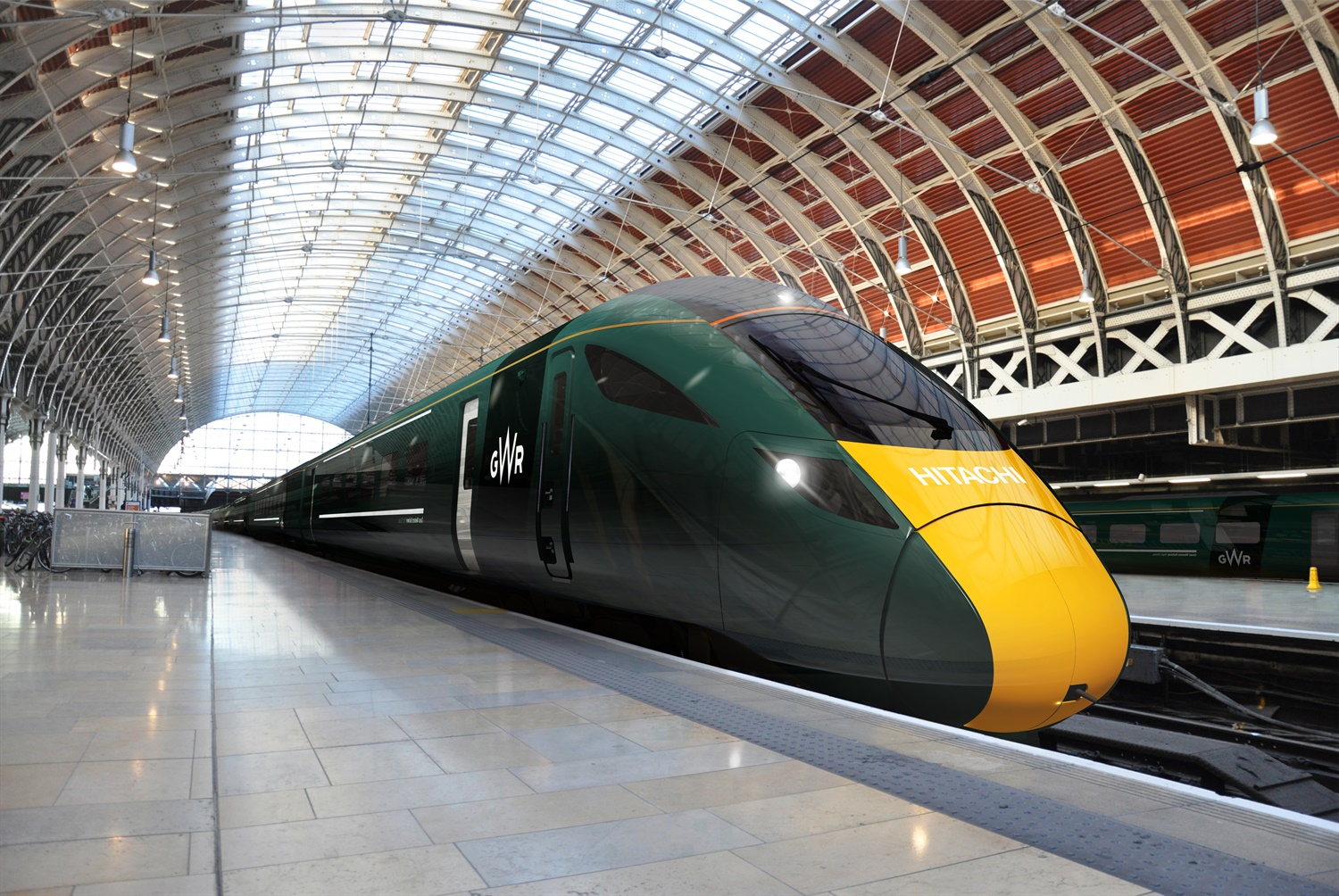30.07.15
FGW closes deal for new 29-train fleet
First Great Western (FGW) is to receive 29 new bi-mode long-distance trains to serve the south west from 2018 after receiving government approval today (30 July).
The £360m fleet, set to run between London and Cornwall, will be manufactured by Hitachi and is capable of operating on both non-electric and electric routes.
In April, we reported that Hitachi was due to supply the 200km/h AT300 trains consisting of seven nine-car and 22 five-car trains. The mixed fleet will allow for flexible use, including 10-car formations, and they run using electric traction between London and Newbury.
Eversholt Rail Group will finance the fleet and lease it to FGW. They will be built in Japan, maintained in London and serviced at Laira and Long Rock depots. FirstGroup said in a message to staff: “This will impact on some of our engineering depots when maintenance work on the new trains transfers to Hitachi. We are committed to dealing with the changes as sensitively as possible and giving affected colleagues as much choice as possible.”
The AT300 trains will be similar in design to Hitachi’s Class 800 bi-mode Intercity Express trains, due to enter service on the Great Western Main Line between London and South Wales from 2017. However they will utilise “higher engine operating power to cope with the gradients in Devon and Cornwall” and can carry more fuel to cater for longer journeys between Plymouth and Penzance.
The announcement means the InterCity 125s HSTs currently operating on the route – dismissed by the government today as “40-year-old trains” – can be cascaded elsewhere, presumably to Scotland. When Abellio took over the ScotRail franchise, it promised: “Transformation of the quality of inter-city services by introducing a fully refurbished fleet of HSTs by December 2018 to connect the seven cities.”

Karen Boswell, managing director for Hitachi Rail Europe, said: “Today’s announcement builds on our significant and sustained investment in the British rail sector. This new fleet will be a revolution in customer experience for those travelling to and from the south west.”
Carriages will have up to 24% more seats compared to the majority of the route’s current trains. The upgrade is set to create over 1,000 additional peak time seats in and out of Paddington daily.
New trains are intended to cut journey times from London to Exeter by up to five minutes and to Penzance by up to 14 minutes. They are greener, more powerful and more efficient than the current 40-year-old Class 43 vehicles on the route.
Rail minister Claire Perry said the new fleet will help “open the region for investment like the new IEP trains” serving Northern cities.
Managing director at FGW, Mark Hopwood, had previously said in April: “For us, this franchise deal is about changing the way people think about rail. The Great Western network is already seeing the biggest investment since Brunel, and this deal has been designed to match that investment and ambition.
“It gives passengers newer trains, faster, more frequent services and importantly, given the growth this franchise has seen in recent years, more seats – three million extra seats a year by December 2018.”
FGW, Eversholt and Hitachi Rail Europe got legal advice from Burges Salmon, Osborne Clarke and Addleshaw Goddard respectively. Brioney Thomas, a partner in the Rail sector group at Burges Salmon, said: “We are pleased to have advised our long-standing client First Great Western on the procurement of new rolling stock to run on its West of England Routes. Our specialist transport lawyers supported FGW in delivering this major project to a rapid timescale, deploying our experience on major procurements, asset finance and rail."
Clive Smith from Osborne Clarke and Paul Hirst from Addleshaw Goddard both spoke of their excitement at seeing the deal come to fruition.
Today’s deal is part of the biggest fleet upgrade in a generation of the FGW network. The FGW branding is due to be replaced with the new GWR livery and branding (as shown in the CGI images of the trains) from 20 September.